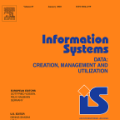PurposeThe purpose of this paper is to present empirical evidence on the implementation, acceptance and quality-related aspects of research information systems (RIS) in academic institutions.Design/methodology/approachThe study is based on a 2018 survey with 160 German universities and research institutions.FindingsThe paper presents recent figures about the implementation of RIS in German academic institutions, including results on the satisfaction, perceived usefulness and ease of use. It contains also information about the perceived data quality and the preferred quality management. RIS acceptance can be achieved only if the highest possible quality of the data is to be ensured. For this reason, the impact of data quality on the technology acceptance model (TAM) is examined, and the relation between the level of data quality and user acceptance of the associated institutional RIS is addressed.Research limitations/implicationsThe data provide empirical elements for a better understanding of the role of the data quality for the acceptance of RIS, in the framework of a TAM. The study puts the focus on commercial and open-source solutions while in-house developments have been excluded. Also, mainly because of the small sample size, the data analysis was limited to descriptive statistics.Practical implicationsThe results are helpful for the management of RIS projects, to increase acceptance and satisfaction with the system, and for the further development of RIS functionalities.Originality/valueThe number of empirical studies on the implementation and acceptance of RIS is low, and very few address in this context the question of data quality. The study tries to fill the gap.
翻译:本文件的目的是就学术机构研究信息系统的执行、接受和质量方面提出经验证据。 设计/方法学/方法学/方法学。 研究以2018年对160个德国大学和研究机构进行的调查为基础。 本文件介绍了德国学术机构实施研究信息系统的最新数字,包括关于满意程度、效用和使用方便程度的结果。还载有关于所认为的数据质量和所偏好的质量管理的信息。只有确保数据尽可能高质量,才可能达到接受程度。为此,对数据质量对技术接受模式的影响进行了审查,并讨论了数据质量水平与用户对相关机构RIS的接受程度之间的关系。 研究的局限性/影响。 数据为更好地了解数据质量对接受TRIS的作用提供了经验要素,在TAM框架内,该研究侧重于商业和公开来源解决方案,而内部发展则被排除在外。 此外,由于抽样规模小,数据质量对技术接受模式(TAM)的影响,数据质量水平和用户对相关机构RIS的接受程度之间的关系得到了处理。 数据分析的低度研究,对于统计数据的接受程度和可持续性分析的深入影响是,对风险信息系统的进一步了解。




